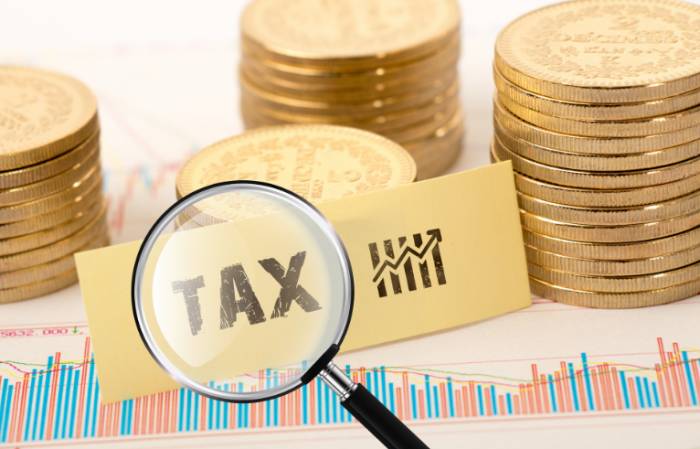Car sales let it slip that in the next two years, remember to "buy big, buy good
China is currently the largest market for motor vehicles in the world, with private cars gradually becoming the mainstream mode of transportation for daily travel in Chinese households. Faced with the choice of purchasing a car, car salespeople inadvertently reveal that when buying a car, one should "buy big, buy quality, and not buy old"! So, what exactly does the so-called "buy big, buy quality, and not buy old" car purchasing principle mean?
In the face of the fierce competition between rapidly developing new energy electric vehicles and traditional fuel vehicles, which type of car is more worth purchasing for car owners?
I. The increasingly competitive Chinese automobile market
China is currently the largest automobile-producing country in the world and is also the largest automobile consumer market globally. The current number of motor vehicles in our country has exceeded 435 million, ranking first in the world.
In addition, China in 2023 set a record for automobile exports of 4.91 million vehicles, breaking Japan's 7-year monopoly on the automobile export list and ascending to the top position among automobile-exporting countries.Who could have imagined that before the 21st century, China was one of the countries with the lowest per capita car ownership in the world? So, how did our country achieve the takeoff of the automobile market in the 21st century?
The history of China's automobile development is relatively short. It was not until 1999 that China's independently developed automobile engine was finally introduced to the world.
It is important to note that the world's first automobile engine was born in Germany in 1867, and our country's development was a hundred years behind that of automobile powerhouses.
Despite the lag in domestic automobile production technology, the demand for automobiles in our country has been continuously increasing.
Since the reform and opening up, China's economy has taken off, and a large number of families have emerged with the need for vehicles, making the Chinese market a fertile ground for the development of the automotive industry.
In order to improve the sluggish development of the domestic automobile industry, our country has actively attracted foreign investment and greatly promoted the development of China's automobile industry through joint ventures, with brands such as FAW-Volkswagen emerging like mushrooms after a spring rain.
Moreover, our country has also actively promoted the construction of highways and transportation routes, creating objective conditions for the travel of private cars.
At present, China's total highway mileage has reached an astonishing 5.35 million kilometers, ranking first in the world.Despite the rapid development of China's automotive industry, core technologies such as engines, chassis, and transmissions are all imported from abroad, with Chinese companies only able to earn a small amount of assembly and manufacturing fees.
The boom in China's automotive industry essentially leads to rapid development for foreign car companies.
To this end, China began to lay out new energy in the last century, striving to achieve a leapfrog over traditional fuel vehicles through new energy electric vehicles.
With CATL and BYD achieving technological breakthroughs in the fields of lithium iron phosphate batteries and ternary lithium batteries, respectively, China's local automobile manufacturing industry has ushered in prosperity.
To encourage the development of China's new energy electric vehicles and squeeze the market share that belongs to traditional fuel vehicles.
Our country has implemented measures such as vehicle purchase subsidies, financial subsidies, and reduced purchase taxes for new energy vehicle companies, finally making our country's new energy electric vehicle industry usher in unprecedented prosperity.
China's new energy electric vehicles are unprecedentedly popular, with a series of new forces in car manufacturing such as NIO and XPeng emerging, and traditional technology companies such as Huawei and Xiaomi have also crossed over and entered the ranks of car manufacturing.
In the international market, Musk has become the world's richest man with the great success of Tesla, which shows the infinite development potential of the new energy electric vehicle industry.In the future, whether it is within China or the global automotive market, the competition between new energy electric vehicles and traditional fuel vehicles will become the mainstream of market competition. This has also led to a happy dilemma for many car buyers who are unsure which type of vehicle to choose. Car salespeople have stated outright that the global automotive market will undergo significant changes in the future. When purchasing a car, it is important to adhere to the three major principles of "buy big, buy quality, don't buy old." So, what do these three principles refer to?
II. The Principle of "Buy Big, Buy Quality, Don't Buy Old" in Car Buying
The so-called "buy big" in car buying does not mean that one should choose an SUV over a sports car during the purchasing process. In fact, the "buy big" principle in car buying refers to choosing well-known brands when selecting a car. However, according to the laws of the consumer market, products from big brands often come with a certain brand premium, and their cost-performance ratio is slightly inferior compared to smaller brands. So, why is it necessary to choose a big brand?This is because as the competition in the future automotive market continues to intensify, significant changes will occur in the market, leading to an increasing number of small brand models going out of business and being withdrawn from the market.
As the competition in the domestic new energy electric vehicle sector deepens, various new forces in car manufacturing emerge continuously, even resorting to economic races. Each car company prepares billions of yuan in funds to cope with the increasingly fierce market competition.
Therefore, if one purchases a product from a small brand car manufacturer at a bargain price, despite the generous preferential policies offered before purchase, there is a high risk that the company may close down in a short period of time. At that point, the preferential policies promised by the car manufacturer will all become void.
Moreover, if a car company goes bankrupt, it also implies the shutdown of the car production factory and the closure of the 4S stores opened nationwide.
As a result, once the car has a malfunction, it will become difficult to replace parts. Furthermore, for the automotive market, the value of used cars from bankrupt manufacturers will depreciate significantly, which will undoubtedly lead to a continuous decline in used car prices, making them hard to resell.The principle of buying from well-known brands also applies to the fuel car market. With the continuous impact of new forces in the field of new energy electric vehicles, the fuel car market will become increasingly sluggish in the future. As a result, various traditional fuel car companies will face operational difficulties and may even end up going bankrupt.
The second rule for buying a car in the next two years is to remember the principle of "buying the best." The so-called "buying the best" means purchasing the best-selling model from a particular brand.
There are three main reasons for buying a brand's advantage model. The first is the stable sales volume, which indicates that the car is widely recognized by consumers, and its performance and cost-effectiveness are at a relatively balanced level.
The second reason for "buying the best" is that the advantage model has a large sales volume, and its manufacturing process and after-sales maintenance are more mature. For many brands, even if there is a problem with the advantage model, it can be repaired not only at the 4S store but also at a small repair shop on the street.
The third reason for "buying the best" is its price advantage. With the increase in car sales, car companies can reduce costs by mass production using a set of molds, providing car owners with more favorable prices.Likewise, for the advantageous models in the automotive brands, their used car prices will also be relatively stable. After purchasing, if the owner wants to sell, they can also get a better price for the used car.
The third principle for buying a car in the current and next year is to "not buy old." The principle of not buying old is mainly aimed at new energy electric vehicles.
Nowadays, the development of new energy electric vehicles in China has entered a fast track, and the technological upgrades of new energy electric vehicles are truly day-to-day changes.
For example, new energy electric vehicles produced three to five years ago have a significant difference in power, endurance, and recent new models.
If you buy an old model of a new car, you will spend a more expensive price and experience a worse driving experience and car performance.
Therefore, car owners should avoid old models. This principle also applies to the fuel car market.
You should know that in the past, traditional fuel car companies did not receive the impact of new energy electric vehicles, and the performance of the new cars they launched only had a toothpaste-like increase, which is very chicken ribs.
But with the strong impact of new energy electric vehicles on the traditional fuel car market in recent years.Traditional automakers, such as Audi, BMW, and other brands, have also begun to focus on the performance of their new vehicles, significantly enhancing the cost-performance ratio of their latest models.
In the future, as the competition in the automotive market intensifies due to the rise of new energy electric vehicles, the choices for car brands will become more diverse.
So, for the vast majority of car buyers, whether it is more appropriate to purchase a fuel-powered vehicle or a new energy electric vehicle, and whether the next one or two years are the golden period for car purchases?
III. Future Development of the Automotive Market
What can be confirmed at present is that, with the continuous impact of new energy electric vehicles on traditional fuel-powered vehicles, new energy electric vehicles will become the mainstream in the automotive market in the future.
Compared to traditional fuel-powered vehicles, new energy electric vehicles have multiple advantages, the most important of which is the lower cost of use.
Fuel vehicles have a hard demand for oil, which, although a renewable resource, has a slow regeneration rate, and the price of oil will continue to rise in the future.
However, new energy electric vehicles are different; they have lower electricity costs and a smoother driving experience, and they are bound to become the mainstream in the market.Furthermore, new energy electric vehicles are more environmentally friendly compared to traditional fuel vehicles. They produce fewer polluting gases, which helps to curb environmental pollution.
Under the increasing emphasis on sustainable development and the continuous influence of the green development concept worldwide, new energy electric vehicles will gain a more important strategic position, and their development prospects are very promising.
Nevertheless, it is still not the best time to purchase new energy vehicles at present.
The new energy electric vehicles are still in their infancy, and issues such as battery life and range have not yet been adequately resolved.
In the future, new energy battery technology will continue to advance, and the introduction of solid-state batteries is drawing near, which will bring new vitality to the new energy electric vehicle market.
Therefore, when new energy solid-state battery vehicles become available for sale, it may be the best time to buy a car.
Conclusion
As the new energy electric vehicle market becomes increasingly popular, the global automotive market is becoming more competitive.
For those planning to buy a car in the next one or two years, it is important to remember the car-buying principle of "buy big, buy quality, not old," in order to purchase the desired car.For those considering purchasing a car in the current and upcoming years, remember the principle of "buy big, buy quality, don't buy old." What are your thoughts on this?
Do people prefer fuel-powered cars or new energy electric vehicles? Feel free to leave a comment and discuss in the comment section.






























Join the Conversation